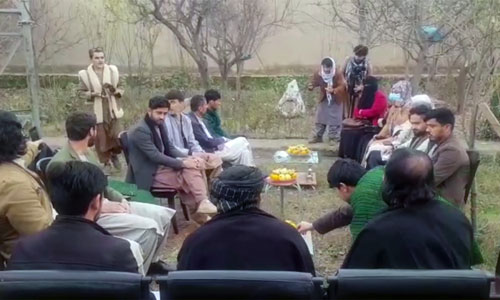A meeting has been held in Takhar province between local media and Islamic Emirate of Afghanistan (IEA) authorities in the hope of resolving problems journalists have in the province.
According to journalists, media organizations in Takhar are dealing with severe financial problems as well as a general lack of access to information.
A number of journalists and media workers in the province have cited economic problems, lack of support from institutions that support journalists and media, and lack of access to information as the main problems they are dealing with.
In line with this, they have appealed to the local officials and to organizations supporting journalists to resolve the problems.
“We request the United Nations and aid organizations pay serious attention to the issue of information and provide financial support to journalists,” said Sayed Yaseen Dehzad, head of the Council of Journalists in the northeast of the country. A number of female journalists, however, also called for restrictions on them to be lifted so they can return to work.
“Our request is that we want to play a role again in Afghanistan,” said Taman, a female journalist.
Meanwhile, a number of organizations that support the media say that there should be no restrictions on women journalists.
“During the republic regime, more than 35 percent of media workers in Takhar were women, but this is not the case now,” said Sami Khawari, a representative of the journalists’ protection committee for the province.
However, the Directorate of Information and Culture of Takhar has said that until the policy framework for the media has been finalized in Kabul, they are unable to resolve the problems.
“There is still no procedure for women working in the media in this province,” said Ainuddin Motmaen, head of Takhar’s information and culture.
According to the officials, out of 23 media outlets that were operating in the province before the collapse of the former government, only eleven of them are still active.—Ariana news








